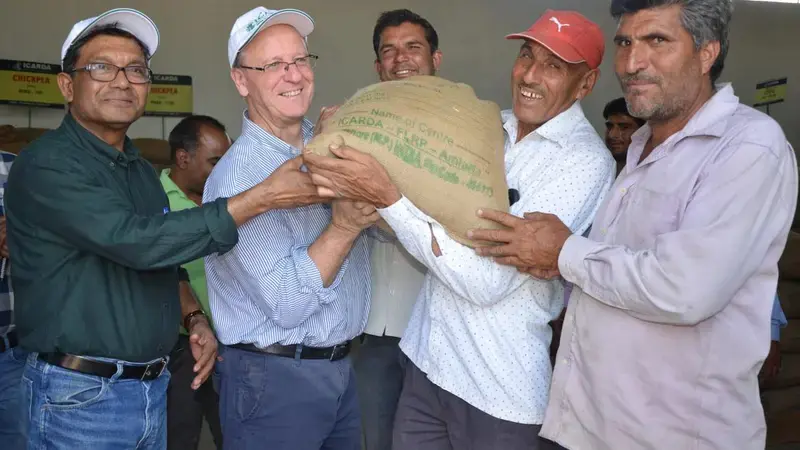Facilitating technology dissemination in central India

Amlaha, Madhya Pradesh - Agronomists, breeders, and crop-protection experts develop new varieties and technologies across crop systems, but the adoption level of the innovation is not always optimal. So it is essential that the innovation is brought to farmers to facilitate adoption. Once farmers learn that new technologies or varieties can result in more yields and higher income, they certainly adopt them – the ultimate impact of agricultural innovation is therefore seen in the field, not in the lab.
This effort to support greater adoption of agricultural innovation by ICARDA and its national partners has been key to generating impact in South Asia.
To move forward this research-development continuum, ICARDA has established the Food Legumes Research Platform in Amlaha in central India’s Madhya Pradesh state. The government of Madhya Pradesh has supported ICARDA’s effort to scale up innovations by providing fully-fledged research-and-training facilities – both for researchers and farmers – at the Food Legumes Research Platform.
The research platform has already begun helping the region to absorb, rapidly and effectively, the latest agricultural innovation and enhance food security in the country.
Most recently, the Indian Agricultural Research Institute (IARI) and the Indian Institute of Pulses Research (IIPR) have developed early-maturing and disease-resistant red lentil varieties – “Pusa Ageti” and “IPL-316” – using ICARDA’s genetic resources. Both IARI and IIPR are part of ICAR, the Indian Council of Agricultural Research, ICARDA’s long-time partner. Both varieties are high-yielding, and IPL-316 is also rich in iron content, which helps to fight hidden hunger.
“We are happy to provide quality seeds of these two varieties to the farmers,” said Jacques Wery, ICARDA’s research director and deputy director general, on a recent visit to the research platform. The scientists there have been working hard to produce quality seeds and distribute them to the farmers for faster dissemination in Amlaha and nearby villages.
“We are helping farmers expand lentil production,” Wery explained. “This region has grown wheat and Kabuli chickpea predominantly, and the farmers have been keen to grow more lentils.”
